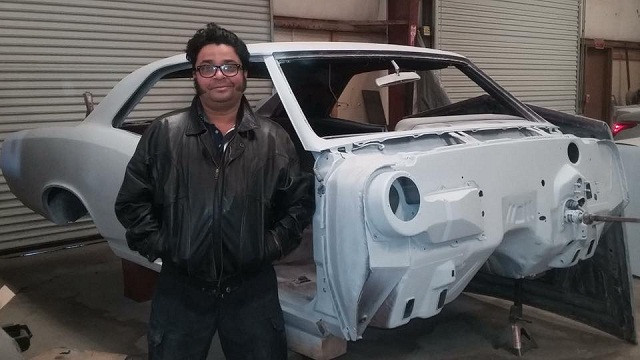Last Updated on January 31, 2023 by Leepu Da Maxim
A person who has purchased a car from a dealer must write a letter requesting the title of the car. From the day the dealer receives the letter, then a 10-day period begins for the owner of the vehicle to receive the car title. In case the dealer does not send the car title to the owner, the owner can return the vehicle and receive the money back.
Key Takeaways
- If you don’t receive the car title from the dealership then you should contact the dealer and inquire about the status of the title
- You should contact and check with your state’s Department of Motor Vehicles (DMV) to see if the title of the car has been transferred to your name or not
- If the dealer fails to provide you with the letter requesting the title of the car then you can return the car to the dealer or take legal action against the dealer
- Usually, the maximum turnaround time for a car title is 30 days so if you don’t receive the car title from the dealer within 30 days then you should contact a lawyer for legal advice
Never Received A Car Title From The Dealership – Useful Tips
| Tips | Description |
| Send A Letter | After the dealer receives the letter from the buyer requesting the title to the car, a response is due within 10 days. |
| Appeal To The Court Of Law | Going to court is a good way to force the dealer to transfer the title to the car. |
| Check The NMVTIS | Checking the National Motor Vehicle Title Information System database allows you to find out who owns the vehicle in question. |
| Pay Off A Loan | Some lenders release a car title when the loan is fully paid off. |
| Usual Delay | The normal turnaround time for a car title is 30 days maximum |
What Happens If A Car Dealer Does Not Send The Title?
Sometimes people who purchase a vehicle from a dealership can feel cheated by being the victim of fraud. Unfortunately, fraud can come in many different forms when a person purchases a vehicle. One of the most common situations is the failure to transfer the registration or title of the car to the owner.
In particular, this type of situation is one of the most common of all frauds that can occur. Here the dealer simply refuses to transfer the registration or title of the car to the rightful owner. In turn, if the person has applied for a loan the bank will not care if it is a scam. The bank will simply continue to demand that payments be made in the same manner.
In turn, when the registration or temporary tags expire the lender may even apply to repossess the vehicle. Of course, people do not need to defend against some type of dealer fraud for fear of having the vehicle repossessed. On the contrary, the situation only gets worse when people do not make the appropriate claims in these types of fraudulent situations.
The transfer of ownership of the car title must be made along with the sale. This is because there is a law that obliges dealers to carry out this procedure in this manner. Despite being a law in force, this does not mean that the owners always make the transfer of ownership of the title of the car to the corresponding buyer.
When all this happens, the purchase agreement becomes unenforceable as it is an illegal acquisition. Thus, the financial terms become fraudulent and false. Likewise, the transaction becomes illegal although this is not the buyer’s responsibility. In any case, the buyer needs to take the corresponding legal action to avoid further problems.
In this case, there are certain legal actions that people can take when they want to keep the vehicle. In this way, it is possible to force the dealer to transfer the title of the car to the buyer even if they refuse from the very beginning. Alternatively, it is also possible to obtain a court order.
In this way, the court may order the Commonwealth to reissue the title to the car in the name of the purchaser. In general, these actions are usually more than sufficient to compel a car dealership to transfer the title to the car. Even many dealers do not go so far because they are afraid of suffering the consequences of these illegal acts.
Additionally, some banks may be able to repossess the vehicle even though it is a fraudulent and illegal transaction. There are some cases in which banks have been fined more than $1,000,000 for demanding payment for a fraudulent transaction.
One of the most well-known cases is that of Credit Acceptance Bank when a buyer did not receive any time on the title of the car. It could also happen that a vehicle is sold at a dealership out of some distrust.
A dealer might buy inventory from a buyer on credit. In turn, the bank begins to hold a lien on the car title. Here, simply a few days after the sale of the car to the initial buyer the dealer must pay in full.
Here, the dealer has a few days to repay the loan provided to the buyer. Whereupon, the dealer must pay off the lien, pay the bank and transfer the title to the buyer’s car. Of course, in some fraudulent situations, this is not what ends up happening. In particular, when the dealer is about to go out of business, fraud may be involved.
The sale of a buyer’s inventory may be made knowing that the dealership will close in a few days. In other words, the dealer is simply taking all the money he can to get away. As soon as the situation becomes too complex, it is advisable to hire a lawyer who specializes in this. Hopefully, it is possible to get out of this problem without too much effort.
How Long Does It Take To Receive A Title After Purchasing A Car?
When a buyer has the necessary lender and vehicle data and information, it is very easy to obtain a vehicle title. This is necessary when people want to sell a vehicle before the loan is fully paid off. In principle, the sale should offer two of the money the buyer needs for the loan. However, the car title is also necessary.
As is often the case with a house or real estate, vehicles also have a title. It is this document that indicates exactly who owns a given vehicle property. In turn, this includes certain information about the vehicle as well as the exact identity of the owner.
The specific layout of the information contained in each vehicle title may vary from state to state. In general, the original date of purchase is always included as well as the vehicle identification number and registration number. The odometer number on the date of purchase and whether it is a new or used car is also usually included.
Among the additional data that may or may not be included, we should mention the following:
1. Driver’s License Number
2. Make, Model, And Year Of Manufacture Of The Vehicle
3. Name And Some Contact Information Of The Lender
4. Name And Address Of The Primary Driver Of The Vehicle
In many cases, the vehicle title is held by lenders until the loan is fully paid off. So, lenders release the vehicle title once the loan is fully paid off. It is also necessary for the buyer to obtain a reliable credit report to ensure that they have paid off the entire loan.
Either way, there are several ways in which the title to the vehicle can be obtained. Additionally, a person may be the owner of a vehicle even though he or she does not have the physical title. However, a person may believe that he or she owns a vehicle without having the physical title, and this is sometimes not the case.
This is why it is necessary to perform a title verification to obtain complete information about the history of the vehicle in question. This also usually includes additional information such as accidents or floods the vehicle suffered, odometer readings, and all the dates the vehicle was sold. So it is necessary to take the VIN of the vehicle to perform a title verification.
In this case, the person must also take his or her credit card and contact a provider of the National Motor Vehicle Title Information System, or NMVTIS for short. Today, there is a national consumer protection database that provides secure access through its website. In particular, this includes vehicle title information from across the country.
Best Way To Obtain A Car Title
There are several ways to obtain a title to a car today. Some of these ways are often used when a dealer refuses to transfer the car title to the right buyer. Therefore, some experts recommend finding out the proximity to the Department of Motor Vehicles (DMV) office in the state where the buyer lives, as well as the lender’s office.
These two factors are very important to know exactly where to claim and successfully obtain the title of the car. It is also important to consider if the buyer wants to make the sale of the vehicle, and needs to quickly obtain the car title.
Another very common situation is that the buyer simply wants to have the car title to obtain all the complete information on the vehicle. In the latter case, obtaining the car title can be much more flexible, and can even be received by mail.
In contrast, obtaining the car title quickly may require the intervention of the court in each state. The court may ask the state in which the person lives to issue the car title accordingly based on the purchase that has been made.
References:
https://www.in.gov/sos/dealer/title-delivery/
http://www.txdmv.gov/motorists/consumer-protection/dealer-closures

Hi, I’m Leepu Da Maxim , a dedicated car enthusiast with over 10 years of experience in this field, and I’m thrilled to share my passion and expertise with fellow car enthusiasts like you. My journey began in my hometown West Jordan, Utah, where my fascination with the mechanics and design of cars sparked at a young age. Over the years, this passion has evolved into a commitment to providing accurate, insightful, and engaging information about all things automotive through CarsAmazing .

